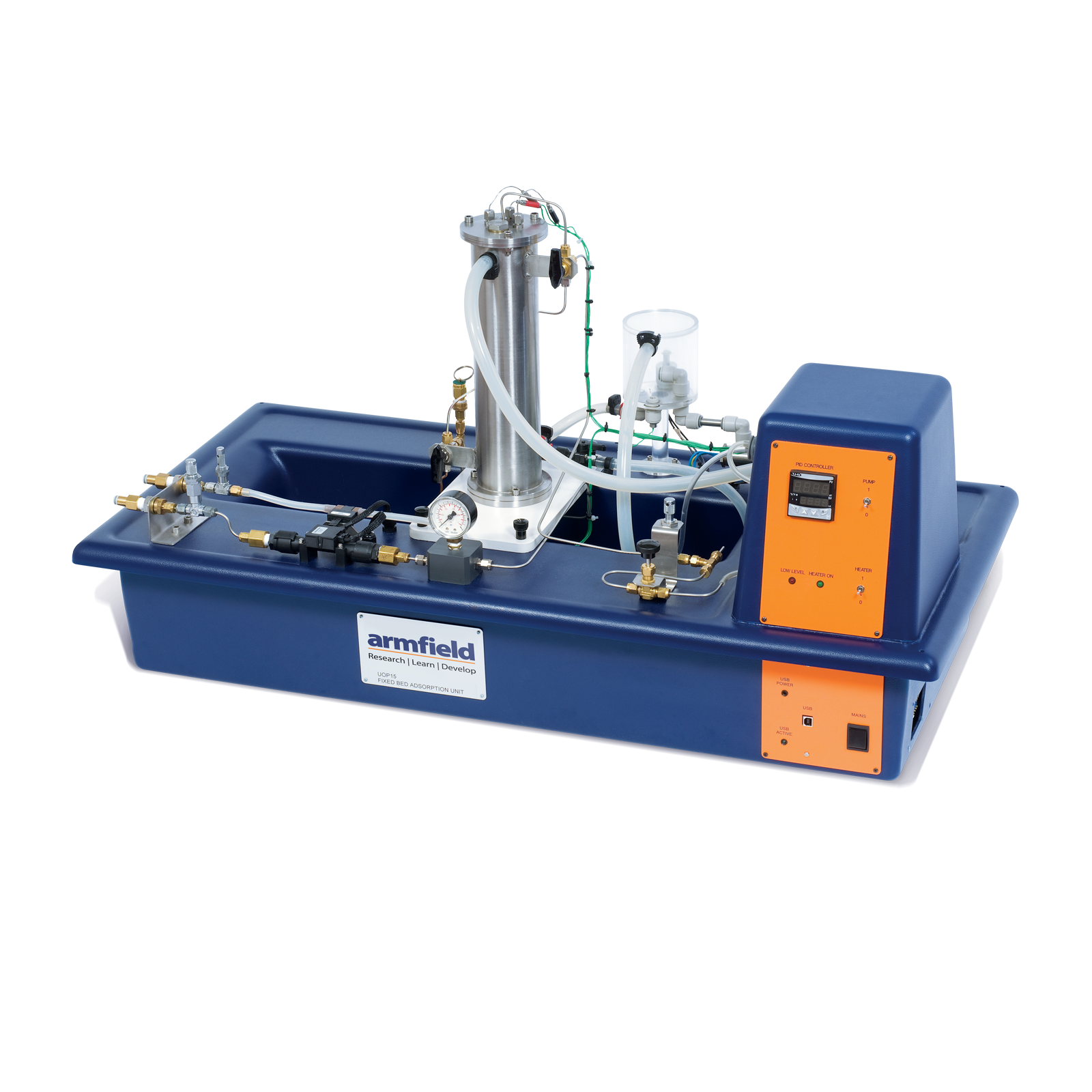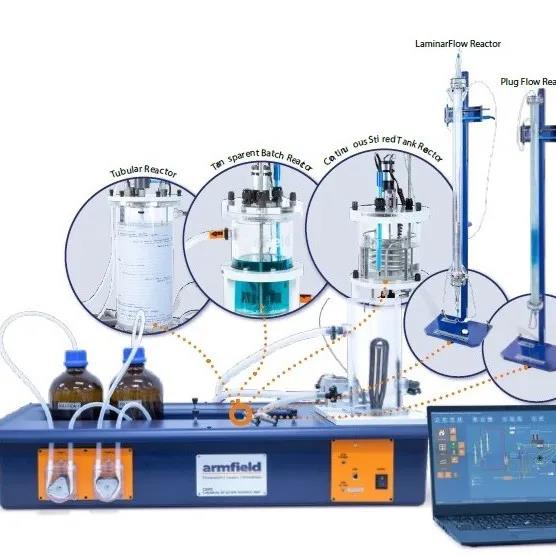Detailed Capabilities
? Teaching exercises are included to familiarise students with the following principles:
? Study of the adsorption/desorption processes under different operational conditions: temperature, flow rate, molar fraction and pressure
? Study of the breakthrough curves of temperature profiles during the adsorption/desorption process
? Study of the quasi-isothermal regime at low concentrations and pressures
? Study of the solute movement theory model, which describes the adsorption/desorption process
? Familiarisation with the formation of the compressive and dispersive fronts in adsorption processes
? Analysis of the breakthrough curves of CO2 during the adsorption and desorption/regeneration processes
? Obtain the adsorption equilibrium isotherm of CO2 from the desorption curve (dispersive wave)
Description
The UOP15 introduces students to the fundamentals of adsorption and desorption processes using a packed bed reactor. The unit is ftted
with a stainless steel reactor column in which the adsorbent, activated carbon, is packed.
There are six thermocouples (T1 - T6) sited along the length of the column, which enable the adsorption/desorption fronts to be followed
(adsorption/desorption of CO2 leads to changes in temperature).
A hot water circulation system, also containing a thermocouple (T7), is connected to the jacket of the column to enable accurate temperature
control via a PID temperature controller. This way the desired processing temperature is accurately maintained.
The system is equipped with all the valves required for ?ow direction control, ?ow rate control and pressure relief for safety.
Electronic ?ow meters monitor the ?ow rate of both the carrier gas, helium, and the absorbate, carbon dioxide. These combined with the
column temperature sensors and the IR detector, for measuring CO2 concentration, enable the processes to be followed closely and a wide
range of operating variables to be examined.
There is a divert path around the column, which is used for calibration of the IR detector and also setting up of process conditions prior to
beginning an experiment.
The recommended operation variables are ?ow rates of 0 - 5 SLPM and pressures of 0 - 0.3 bar. Such operating pressures suit safe operation and
provide ideal conditions for the adsorption/desorption processes.
The UOP15 column is easily loaded with the activated carbon supplied or the operator could use their own variety thus enabling performance
comparison of di?erent adsorbents.
All important sensors used on the unit are electronic and provide outputs for data logging and analysis. The data logger, provided with
the unit, interfaces between the UOP15 unit and the user’s computer using a USB port.
The associated software enables graph plotting and provides full instructions on setting up the equipment and performing the experiments.
Download
相關標簽
Armfield,UOP15,Fixed Bed Adsorption Unit

 Enquiry:hkmarketing@epc.com.hk
Enquiry:hkmarketing@epc.com.hk  Whatsapp Enquiry: +85261990717
Whatsapp Enquiry: +85261990717











